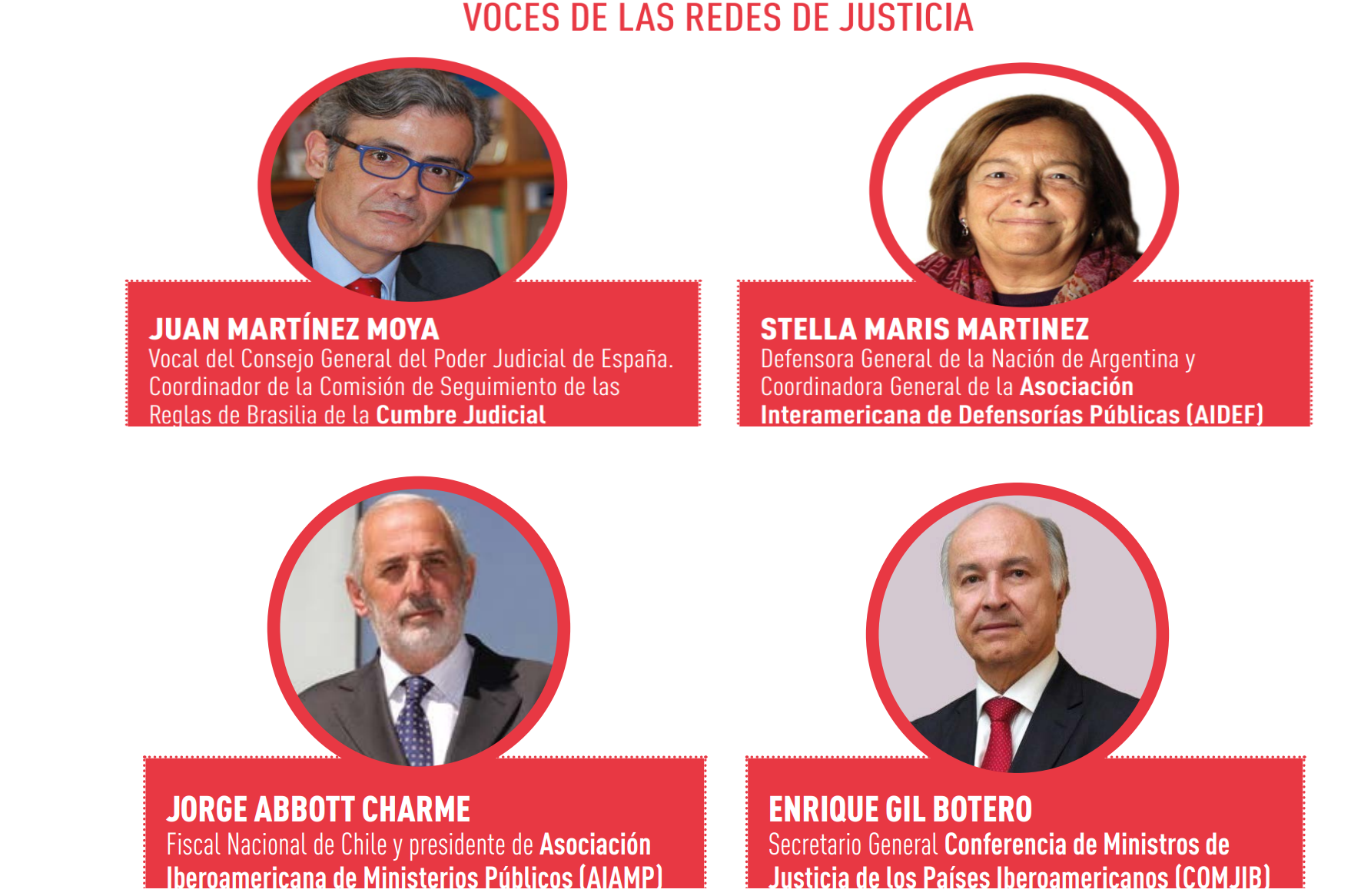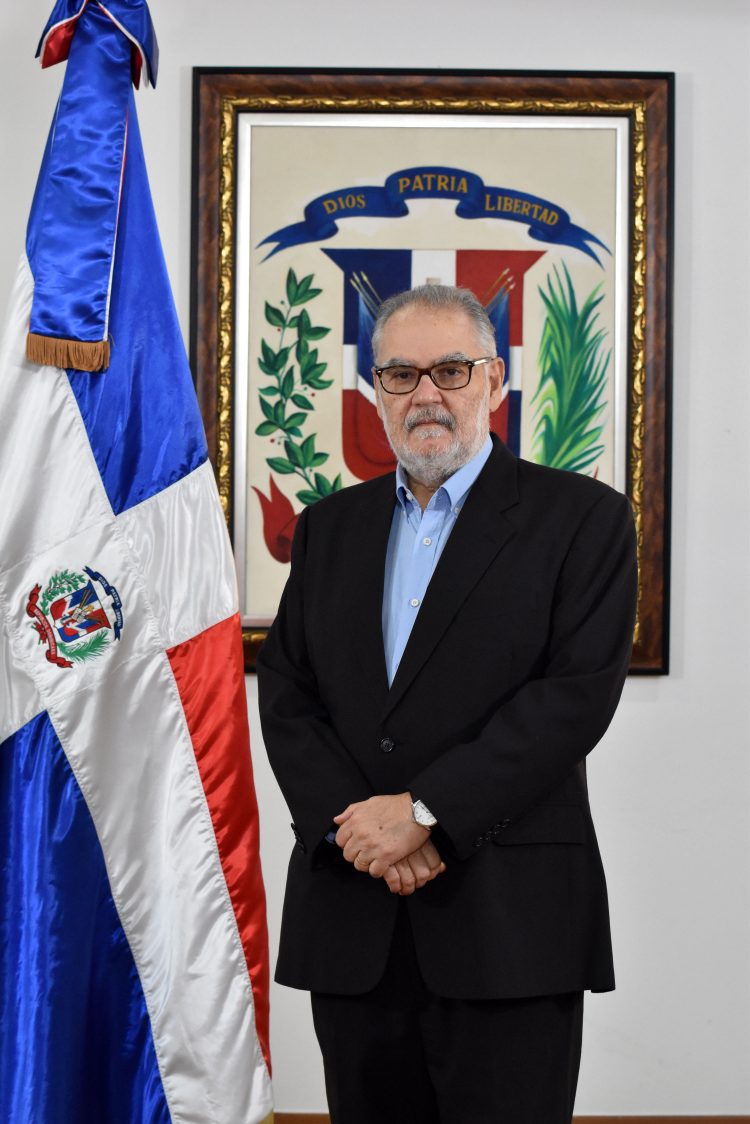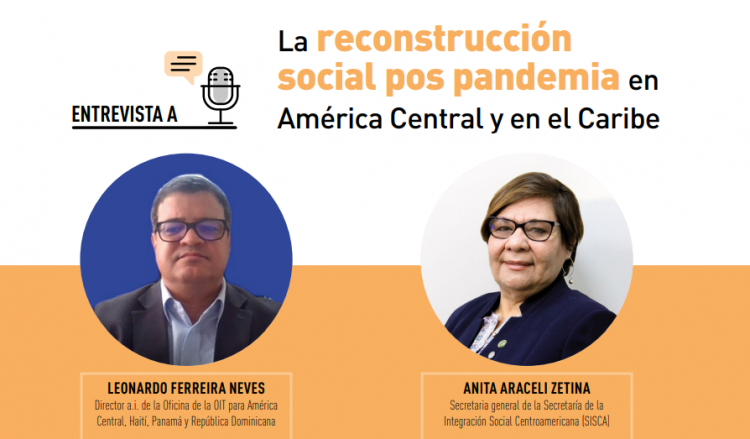Voices from the Justice Networks; Juan Martinez Moya, Spanish General Council of the Judiciary Coordinator of the Brasilia Rules Follow-up Commission of the Ibero-American Judicial Summit; Stella Maris Martinez, General defender of the Argentine Nation and General coordinator of the Inter-American Association of Public Defenders (AIDEF); Jorge Abbott Charme, National prosecutor of Chile and president of the Ibero-American Association of Public Ministries (AIAMP); Enrique Gil Botero, secretary General to the Conference of Ministries of Justice of the Ibero-American Countries (COMJIB)

Latin America remains one of the most unequal regions in the world, blighted by numerous, deep gaps where poverty and extreme poverty have worsened in recent years. These problems are common to all the States in the region, as are high rates of violence, serious prison crises, extension of the phenomenon of migration and internal displacement, and precarious access to basic public services, including access to justice, to name just a few of the challenges facing the region.
This has been aggravated by the pandemic, which is particularly affecting people in vulnerable situations. It is precisly these people who face the greatest obstacles to accessing justice and the possibility to enforce their rights: people in poverty, as well as those who lose their jobs or work in the informal sector; those with limited access to health, education, housing, social benefits; victims of gender violence or domestic violence; persons deprived of liberty; people in a situation of mobility (displaced persons, migrants and refugees) who have been stranded at the borders and in reception centres; children and adolescents; native peoples; people with disabilities; LGTBIQ + groups. In addition, it has been shown that violence against women and girls has intensified during the pandemic, and that female victims of violence face more obstacles in approaching justice services.
In this regional context, the States and institutions of the justice system face the enormous challenge of providing measures to guarantee recognition and effective protection of the rights of their citizens, especially the most vulnerable groups. Hence the importance of continuing to promote public policies on access to justice and other rights in the coming years as an effective tool against social exclusion and the fight against inequality, not only at the national level, but especially at the regional level within the framework of the different regional justice networks. With this objective, work has recently begun to develop two strategic instruments at the regional level. Firstly, the COMJIB is defining an Ibero-American Regional Strategy for Access to Justice that subsequently facilitates the implementation of National Plans for Access to Justice in each of the countries; secondly, under the coordination of COMJIB and the Ibero-American Judicial Summit, an Ibero-American Agreement on Access to Justice is being drafted and is expected to be submitted for approval by the States during 2022.
Voices from the Justice Networks
| Juan Martinez Moya |
| Spanish General Council of the Judiciary Coordinator of the Brasilia Rules Follow-up Commission of the Ibero-American Judicial Summit |
| “Any reasonable observer can see that there are obstacles and barriers that people have to face in order to access justice. These obstacles and barriers have causes and have a greater impact on the most vulnerable. The list of barriers is extensive and varied: trained human resources, adequate infrastructures in judicial headquarters, victim legal guidance offices, measures to counteract the digital divide in the most vulnerable. People in vulnerable situations perceive do not trust the justice system, and the lack of measures causes dramatic spaces of impunity and lack of protection for vulnerable victims. Countries must have adequate legal instruments that must have a practical translation into concrete actions. A challenge for the systems in the region is to produce a legally binding text on the right of access to justice. If this text is also drafted inspired by the document of the Ibero-American Judicial Summit “100 Brasilia Rules guarantee effective access to justice for people in vulnerable conditions (updated 2018 version)”, that company will be on the way to the right destination. Within this framework, the impact of the Ibero-American Agreement on Access to Justice would help to consolidate the rule of law and would influence several scenarios: 1) it will improve the legitimacy and reliability of the judicial system; 2) will strengthen the quality and specialisation of the public defence system; and 3) within the framework of public policies, the countries in the region will be able to carry out strategic planning on access to justice based on quality standards of justice, which will contribute to greater legal security and social cohesion.”
|
| Stella Maris Martinez |
| General Defender of the Argentine Nation and General Coordinator of the Inter-American Association of Public Defenders (AIDEF) |
| “Since its creation, the AIDEF has set out to defend the full validity and effectiveness of human rights and guarantee the services to people, fostering widespread, equal access to justice. In this regard, the removal of legal, social, economic and cultural barriers that hinder the right to effective judicial protection is a constant concern of Public Defenders in the region. It is considered that the main objective of the entire operation of the public defence at all levels of action and stages of the process, including representation before human rights protection organisations – through Inter-American public defenders – is to facilitate access to procedures designed to ensure the effective enjoyment of rights. Therefore, guaranteeing access to justice without any distinction and to a comprehensive, free and specialised public defence helps to reduce social inequality, fostering social cohesion.” |
| Jorge Abbott Charme |
| National Prosecutor of Chile and president of the Ibero-American Association of Public Ministries (AIAMP) |
| “As organisations responsible for criminal prosecution, prosecution services are a crucial within the justice system and, by the way, they are also crucial in promoting and guaranteeing access to justice. In this framework, the Public Ministries of the region seek to permanently strengthen and facilitate contact with and the services of their prosecutors and officials with victims, witnesses and, in general, other parties intervening in the process. They also work to continuously improve the efficiency of criminal investigations, introducing the necessary reforms and changes within the established legal framework. The Ibero-American Association of Public Ministries, consisting of twenty-two prosecutors in the region, contribute with their lines of work to promote access to justice and to the cohesion of society. Among its projects, it enhances victim and witness protection and promotes juvenile restorative justice in the region by mainstreaming the gender perspective in criminal investigations, among other objectives. All of the above results in moving towards a more protective, inclusive and equitable criminal justice system.” |
| Enrique Gil Botero. |
| Secretary General to the Conference of Ministries of Justice of the Ibero-American Countries (COMJIB) |
| “Access to justice is a fundamental axis of the work of the COMJIB, as a gateway to guarantee the fulfilment of other rights and an essential element to promote the development and social cohesion of our peoples, aligned with SDG 16 of the United Nations 2030 Agenda for Sustainable Development. Although improving access to justice has still not been achieved in the region, we know that the global pandemic has exacerbated the need for public powers to act to make justice available as an essential public service, particularly to people and groups in vulnerable situations or at risk of exclusion, and with the essential gender and diversity approach that enriches our societies.
In this context, with the support of the EUROsociAL+ Programme we have started two major initiatives to achieve the SDGs. Firstly, we are developing a regional access to justice strategy that will be key to strengthening the capacities of policy makers in this area. This action requires coordination with several actors in the justice sector and the countries’ commitment to develop within the framework of the regional strategy, national plans for access to justice to implement quality public policies, with monitoring and evaluation indicators, within a framework of participation by public powers and civil society organisations to coordinate efforts with the aim of improving social cohesion through access to justice. On the other hand, progress is being made with the preparation of the Ibero-American Agreement on Access to Justice, in which the COMJIB and the other institutions sponsoring the initiative have a central role.
We are sure that the importance of Access to Justice in public policy agendas merits this strategy and this agreement, which will be the great consensus framework that will have practical and tangible results and a direct and concrete impact on those policies, especially the daily life of the societies and people in our Ibero-American community.” |



